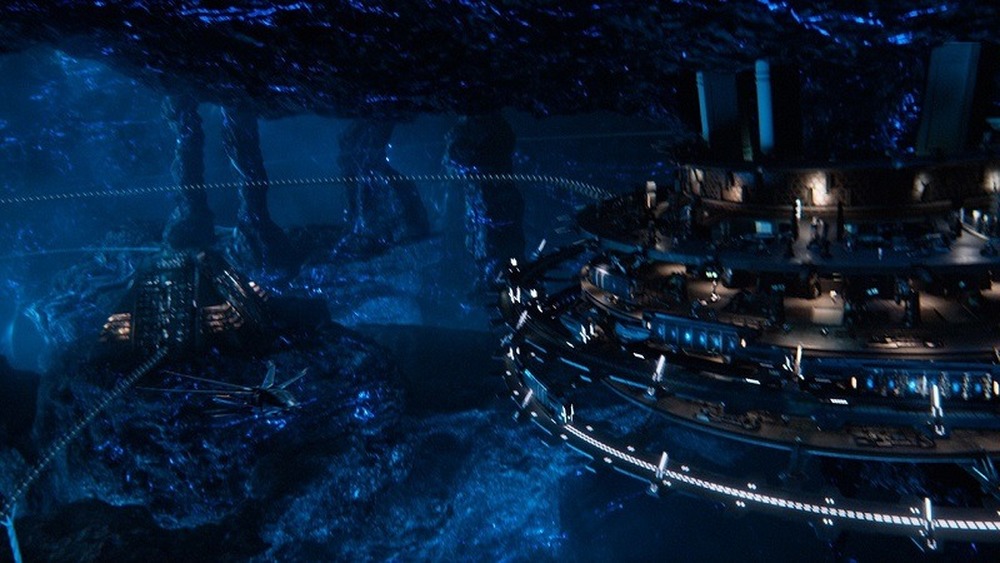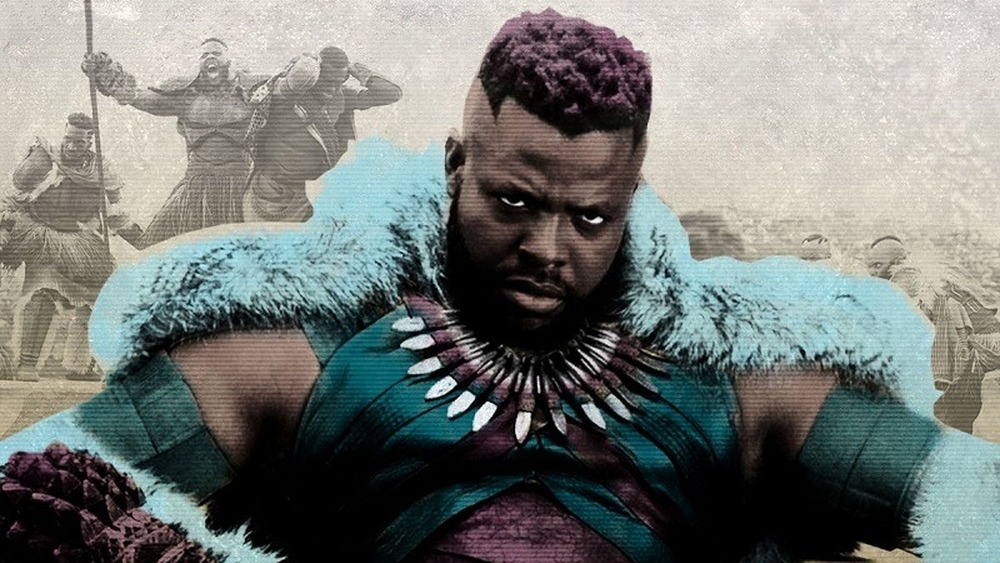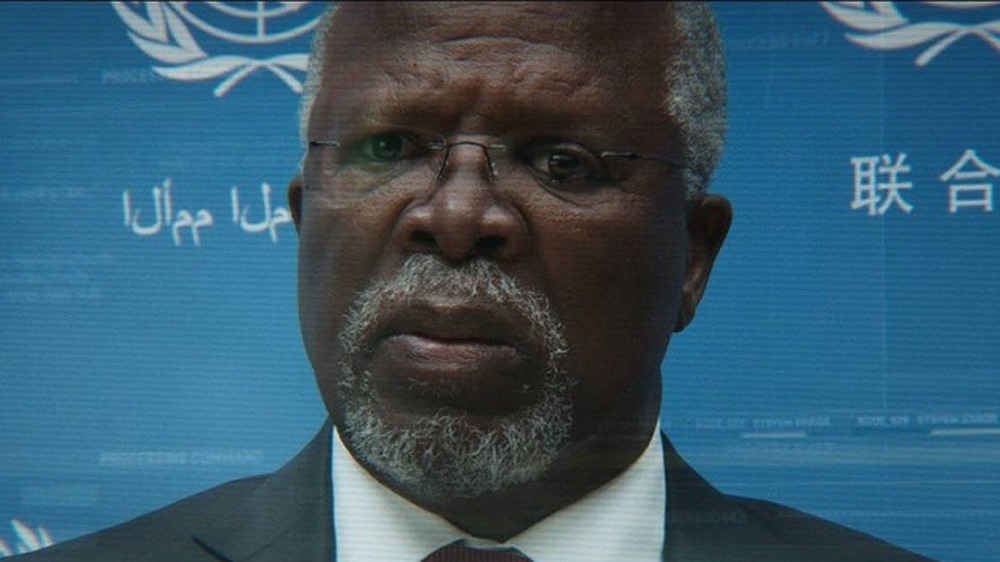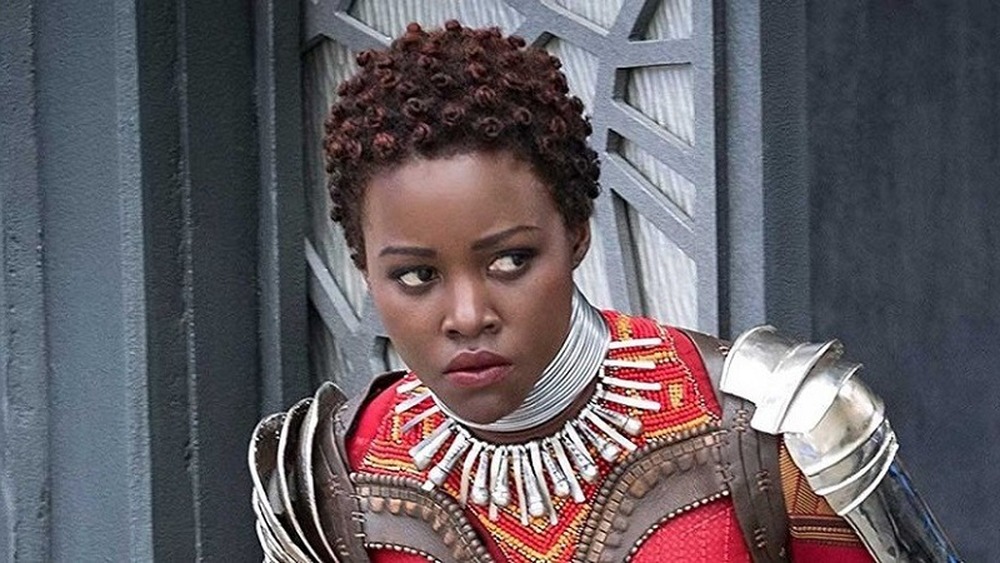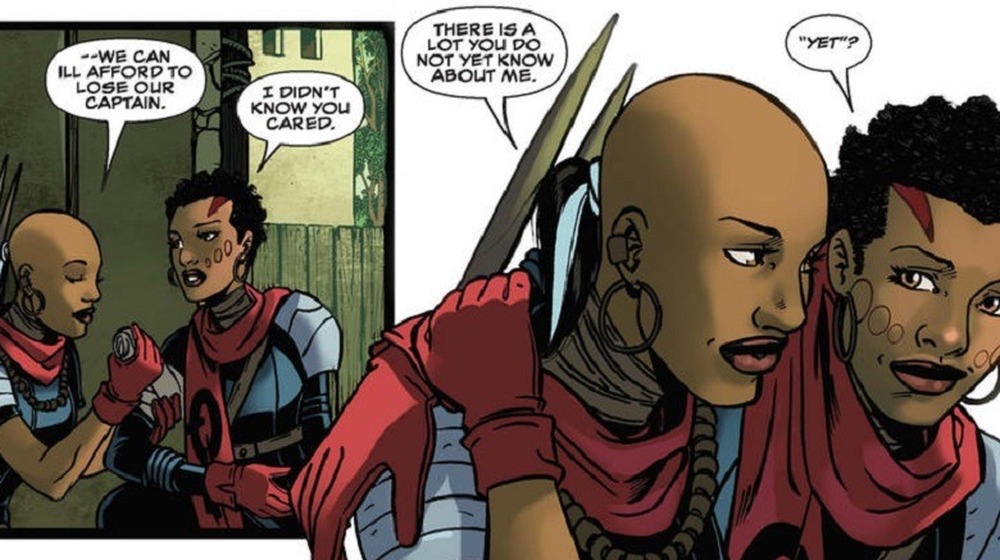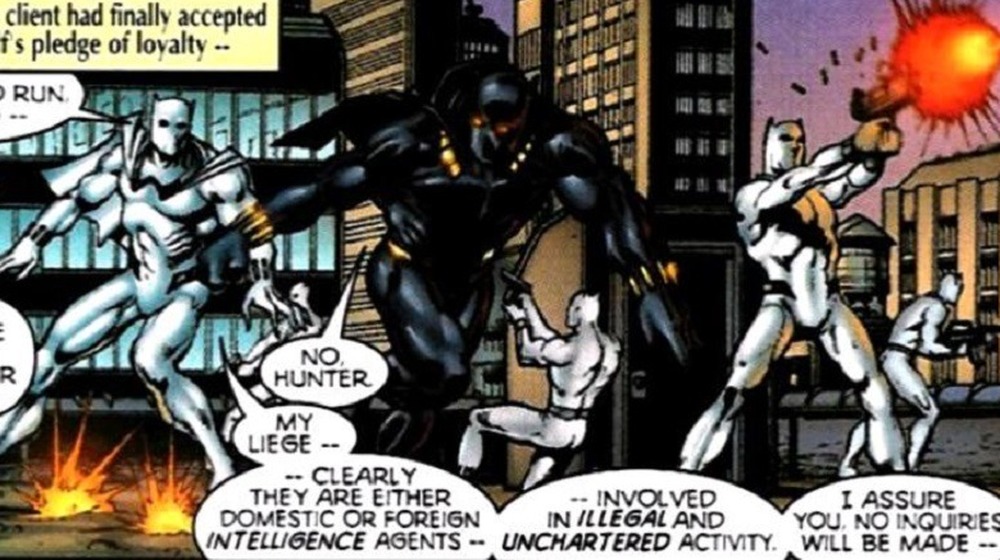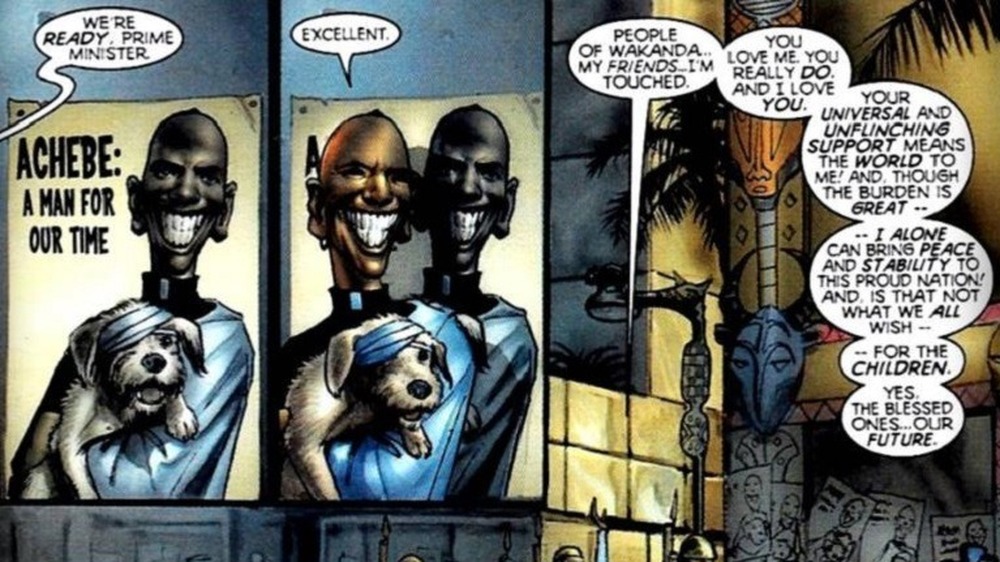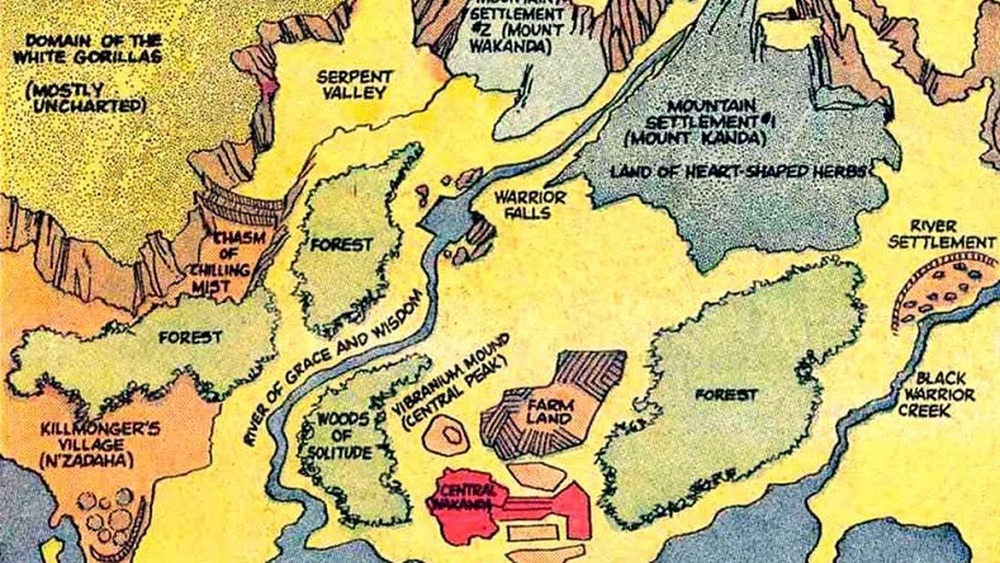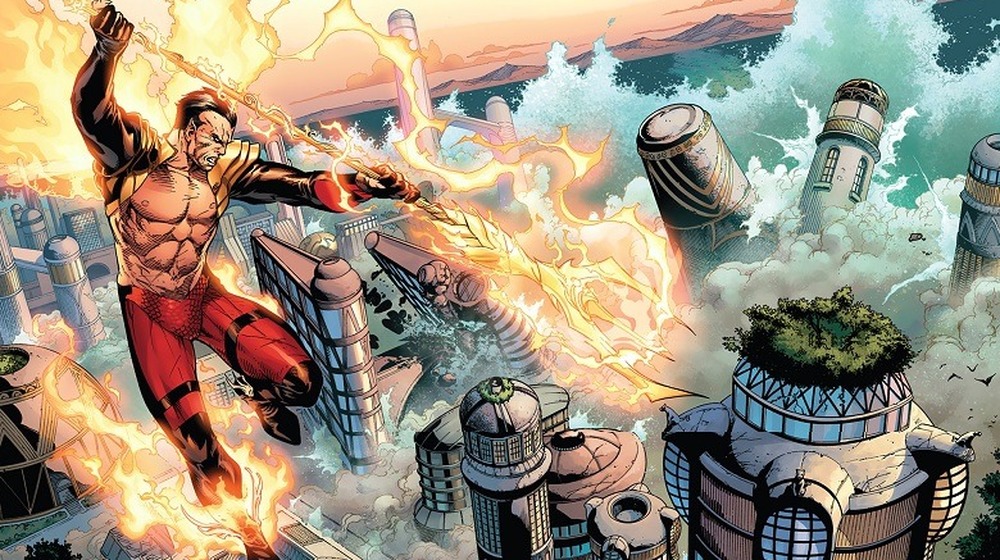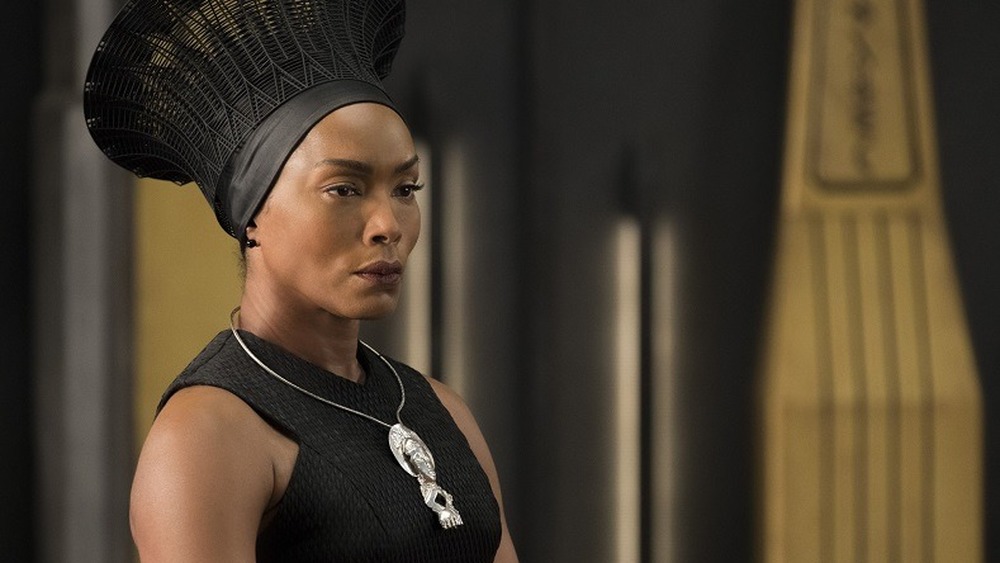Stories Black Panther Fans Most Want To See In The Wakanda Spinoff
Black Panther director Ryan Coogler will be developing a new series set in Wakanda on Disney+. The rich mythology of the country and its history as well as a host of appealing supporting characters make this an exciting prospect for fans of the movie and the original comics alike. A trailblazing superhero for Jack Kirby and Marvel Comics in the 1960s, the Panther's supporting cast was expanded by writers Don McGregor, Christopher Priest, Reginald Hudlin, Ta-Nehisi Coates, Roxane Gay, and Yona Harvey. Some elements of each of their runs were present in the movie, and the Wakanda show is an opportunity to introduce new characters, further explore supporting characters, and investigate Wakanda's history.
There are so many elements of the movie that tantalized fans that could easily form their own narratives, like Wakanda's history, its interactions with the outside world, its moral ambiguity, the conflicting tribes, and much more. There are beloved villains and stories from the comics begging to be added to the MCU mythology. Given that Marvel has announced that the television shows will tie directly into its movies, there are characters and concepts that could be introduced in the Wakanda show that could lead into any number of other MCU projects. Let's take a look at just a few of the possibilities.
The discovery of Vibranium
Vibranium is the miraculous metal with sound-absorbing properties that is the basis of both Wakanda's enormous wealth and its technological wizardry. The bulk of it crashed down to Earth in the form of a meteorite ages ago. The local warriors, led by a man named Bashenga, fearlessly visited the site and discovered the material's unique properties and set about to make weapons. However, the strong radiation from the Vibranium mutated some of the tribesmen into "Demon Spirits." Bashenga drew strength from the Panther God and defeated these menaces, and his strength and leadership united all of the tribes and formed Wakanda. Bashenga became the Black Panther, creating a dynasty that would last through the ages.
Considering that all of the Black Panther ancestors are accessible through the trance-like communion in the Heart-Shaped Herb ceremony, there's an easy way to bring this narrative into the modern day. Bashenga, the discovery of Vibranium, and the founding of Wakanda could be its own extended story arc. There is an opportunity to introduce a number of new characters and expand on the origins of each of the tribes. If Vibranium itself is the focus of the arc, the story of how the Great Mound was sealed off, protected, and mined over the years and how that affected local politics and culture has a lot of possibilities as well. The decision to hide Wakanda's advanced nature from the rest of the world is another potential story of its own.
The White Gorilla Tribe
M'Baku was one of the breakout characters in Black Panther. The chieftain of the Jabari Tribe, he challenged T'Challa for the kingship of Wakanda in ritual combat and lost. Living in the mountains, the Jabari separated themselves from the other tribes and were generally hostile. However, M'Baku came to T'Challa's aid when Killmonger usurped him and was a huge part of Wakanda's defense when Thanos invaded Earth.
In the comics, he was a much more sinister figure, as he directly tried to usurp the throne and betrayed T'Challa's friendship. Then he became a full-on supervillain, taking on the power of the sacred White Gorilla. However, he always had his Jabari tribesmen in mind and protected them as he rejected the modernization of Wakanda and preferred the older ways.
One element from the comics that could be fruitful for M'Baku's story is the introduction of Chante Giovanni Brown, a Jabari native who grew up in America. She dubbed herself "Queen Divine Justice" and grew up as a normal American teenager until she was summoned home to become one of the new Dora Milaje. This could all fit into M'Baku's story after the events of Avengers: Infinity War. Did he have a hand in ruling Wakanda in T'Challa's absence? GIven their heroism, what role did the Jabari have in the post Thanos-snap world? Fleshing out Jabari society and history as they adjust to becoming a more active part of Wakanda is another story arc of its own.
The reign Of King T'Chaka
T'Challa's father T'Chaka was the last Wakandan king to hide how advanced the nation was from the rest of the world. As advanced as his anti-surveillance technology was, even he had difficulty keeping out all invaders, especially when betrayed by one of his own. T'Chaka established a worldwide network of Wakandan spies and operatives and sent his brother N'Jobu to America. Seeing racial injustice in America and beyond, N'Jobu rejected Wakanda's noninterference policies and worked with the mercenary Ulysses Klaue to steal Vibranium. N'Jobu compromised the existence of Wakanda in order to get what he wanted, forcing T'Chaka's hand as he killed him.
T'Chaka leaving behind N'Jobu's son N'Jadaka (aka Erik Killmonger) to be raised as an orphan was a questionable moral decision. This raises the question: What other tough decisions did T'Chaka make during his reign? How did he shape the Wakanda that T'Challa inherited? T'Chaka demonstrated that he was willing to kill a member of his own family in order to protect his country, so who else did he have to kill, especially as superheroes and villains started appearing? How aware was T'Chaka of beings like the Eternals? How much did he teach T'Challa as he was growing up, and how much did he keep hidden? What was his relationship with his wife, Queen Ramonda, like? There could be a great deal of backstory established for modern-day Wakanda as T'Chaka's life is explored.
Nakia undercover
Nakia was introduced in Black Panther as a spy and T'Challa's on-again, off-again lover. This was a sharp break from the comics, where Nakia was one of two Dora Milaje, but her obsession with T'Challa eventually warped into her becoming the deadly assassin Malice. The Nakia of the MCU is a far nobler soul, but they barely scratched the surface of her character in the movie.
A story arc following Nakia's career undercover would be fascinating, starting with what led her to choose a career that led her outside Wakanda so often. Her desire to make a difference in other countries by infiltrating and destroying human trafficking rings, for example, revealed her overall goals. What other kinds of missions did she carry out? The idea that she was especially keen on protecting women and children worldwide is a fascinating one because of her willingness to put herself into compromising situations. Another question to answer would be how and if she had to make tough ethical decisions with regard to perhaps pretending to be part of a corrupt organization or assassinating its leaders. Only the vaguest details of her career have been revealed, and this could have direct relevance to her current life in the MCU.
Revealing what happened to Nakia after Thanos disappeared T'Challa and half of creation for five years, contrasted against her past, would make for a fascinating story arc. Is she still advancing humanitarian interests as part of a new Wakanda?
Ayo And Aneka's rebellion
The story of the lovers Aneka and Ayo was explored in detail in the World of Wakanda series, and it could easily be adapted for television. Both were members of the Dora Milaje who found themselves rebelling against the monarchy. Aneka killed a village chief who was abusing women, but killing him was still forbidden. Aneka was sentenced to death. Ayo pleaded to Queen Ramonda on Aneka's behalf, and while Ramonda was sympathetic, she chose to follow the law to its letter. Ayo freed Aneka, and they stole high-tech Midnight Angels armor.
Fleeing the city, they helped Jabari tribeswomen and started routing bandits who were abusing women. Taking in these women, they became their own self-styled Dora Milaje. They made an alliance with the Jabari and another breakaway group, the People, even though their motives seemed questionable. At the urging of Shuri, they helped defeat the People's attempt at overthrowing T'Challa. In response, T'Challa declared Wakanda to be a democracy, remaining king but only in a representative role.
In the wake of the power vacuum of T'Challa being snapped from existence in the MCU, this is a story that be adapted even more readily. A Wakanda without the strong influence of T'Challa is one that could lapse into abuse. Seeing a story where justice and freedom butt up against regimented traditions is one that would be deeply resonant, and the love story between Ayo and Aneka would add another dimension to Wakandan lore.
The Hatut Zeraze
In the comics, the Hatut Zeraze (alias the "Dogs of War") were the Wakandan secret police. King T'Chaka used them extensively to repel invaders and assassinate political enemies across the globe. They were led by Hunter, the "White Wolf," who wore armor similar to T'Challa's, only all in white. The Hatut Zeraze wore similar armor and carried heavy ordnance as soldiers and assassins. Hunter was T'Challa's adopted brother. King T'Chaka found him as an infant after he was in a plane crash and raised him as his own son. Being Caucasian, Hunter wasn't fully accepted by many other Wakandans, and he grew up jealous of T'Challa. The Black Panther exiled Hunter and the Hatut Zeraze when he became king because he had no interest in using an assassination squad. Hunter later went on to both aid and attempt to kill T'Challa.
None of these characters have been introduced in the MCU, but it's not much of a leap to introduce them, given T'Chaka's demonstrated willingness to kill enemies of the state. Given a destabilized Wakanda, introducing Hunter and bringing him out of exile in an effort to seize power and "bring order" could make him a powerful villain in the Wakanda series. Like all of the best villains, he sees himself as a hero. Like his adopted father, he sees himself as being someone who can make hard decisions when no one else can. He could even free the treacherous W'Kabi and make him part of a coup.
Achebe
One of the greatest villains of Christopher Priest's run on Black Panther was the Reverend Doctor Michael Ibn al-Hajj Achebe. A native of Wakandan neighbor Ghudaza, he was a simple farmer until rebels from another country came. He nursed them back to health, but his wife fell in love with their leader. They left Achebe for dead and thirsting for vengeance. He made a deal with the devil Mephisto, took bloody vengeance, and then went to America and got an education at Yale.
Achebe had his eye on Wakanda and its resources and manipulated politics to stoke a civil war that forced refugees into Wakanda. He manipulated T'Challa into going to America and tried to take the crown, but T'Challa severed Achebe's relationship with Mephisto and beat him. Of course, Achebe became even more unhinged, designing demented death traps for the Panther and talking to a hand puppet named Daki. Achebe's twisted sense of humor and grandiose personality make him a perfect foil to the cool, calculating Black Panther.
Like Hunter and the Hatut Zeraze, Achebe could be a perfect villain in a destabilized Wakanda. Without having to deal with T'Challa, he could easily try to become a demented populist leader, a twisted advisor to whoever's in power, a cult leader, or any number of other roles.
Gods of Wakanda
The Panther Cult and the White Gorilla Cult aren't the only religions in Wakanda. Indeed, many of the tribes worshipped their own gods. Sekhmet, the Lion God, was originally an Egyptian deity who tried to establish a presence in Wakanda. Unlike the Panther God, who only appeared to his priests, the Lion God freely appeared before humans. However, her violent nature didn't exactly make her a popular candidate for worship. She even attacked T'Challa directly in an attempt to gain the Panther God's secrets, but she was defeated. Later, Sekhmet became the subject of a popular Broadway musical called The Lion God.
The Panther Cult was created by the Egyptian goddess Bast. Another Egyptian god, Sobek the Crocodile God, also had his followers in Wakanda, and a few remain to this day. The Hyena Clan was another ancient Wakandan sect that left the country hundreds of years ago but still benefited from the advanced technology established through Vibranium. They became the scourge of the continent, roaming around and scavenging whatever they wanted like their namesakes.
This could all inspire a mystical and magical arc on the Wakanda show, as various sects new and old challenge the Panther Cult for control of the soul of Wakanda. Seeing some of the cults band together against a returning and marauding Hyena Clan would make for a great climax to that story. Even if it's in the background, the show should certainly explore the many religions represented in Wakanda.
First contact with Atlantis
In the comics, Wakanda and Atlantis went from having a tense coexistence to outright war and genocide. King T'Chaka allied himself briefly with Prince Namor the Sub-Mariner against the Nazis, although he still kept Wakanda a secret from the rest of the world. T'Chaka knew Namor was a loose cannon and kept an eye on him. When T'Challa became king, he nearly got into a war with Atlantis over a territory that both claimed, but cooler heads prevailed.
Later, in a conflict between the Avengers and X-Men, Namor turned against his old teammates and tracked them to Wakanda. He used his temporary Phoenix-force powers to wipe out much of Wakanda. Later, when Shuri was queen of Wakanda, she retaliated by destroying Atlantis. Namor got revenge by setting Thanos on Wakanda, telling him that the Wakandans held an Infinity Stone. Things simply went too far.
Namor and Atlantis have yet to be introduced in the MCU. The Black Panther franchise would be a great launching point. Consider that both Wakanda and Atlantis are hidden kingdoms with monarchs suspicious of the outside world. There's even what one might consider an allusion to Atlantis in Avengers: Endgame, when Okoye refers to an underwater earthquake near Wakanda. Namor would make a powerful anti-hero in the MCU, being a generally noble figure who has good reason to be angry at the surface world. Namor could easily turn from antagonist to hero in a single storyline.
Queen Ramonda
T'Challa's mother Queen Ramonda was a somewhat underserved character in Black Panther. She was there to see her son named as king and then traveled to the land of the Jabari in an effort to heal him. The Wakanda series could go into much greater depth regarding her character. How tuned in was she regarding the activities of her husband T'Chaka? Did she approve of him killing his brother in order to preserve Wakandan secrets?
More interesting than that is what Ramonda did when both T'Challa and Shuri disappeared for five years. Okoye took her place as one of the Avengers, but what role did Ramonda play in this? Was she the default monarch of Wakanda? Did she have to fend off attempts at the crown? Seeing her having to deal with the Hatut Zeraze, Achebe, Prince Namor, and other threats could reveal a heretofore-unseen killer instinct in Ramonda.
The show could also spotlight her own agency as a queen. What was she like growing up? How did she meet T'Chaka, and when did they marry? What did she do before that? How does she see Wakanda expanding in the future?

